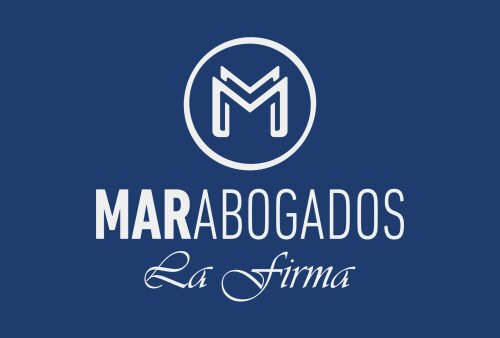Best Real Estate Contracts and Negotiations Lawyers in Spain
Share your needs with us, get contacted by law firms.
Free. Takes 2 min.
Free Guide to Hiring a Real Estate Lawyer
Or refine your search by selecting a city:
List of the best lawyers in Spain
About Real Estate Contracts and Negotiations Law in Spain
Real estate contracts and negotiations in Spain involve a variety of legal processes requiring a clear understanding of local laws and regulations. These contracts typically cover the buying, selling, or leasing of properties and aim to protect the interests of both parties involved. Spanish real estate law is influenced by both national legislation and regional regulations, which can vary significantly across different Autonomous Communities.
Why You May Need a Lawyer
Engaging a lawyer specialized in real estate can be crucial for several reasons:
- Complex Transactions: Navigating the intricate details of property contracts can be challenging without legal expertise.
- Language Barrier: For non-Spanish speakers, understanding the legal terms and conditions can be difficult.
- Dispute Resolution: If disputes arise, a lawyer can provide representation and help mediate disagreements.
- Regulatory Compliance: Lawyers ensure that all transactions comply with local, regional, and national laws.
- Due Diligence: They assist with thorough checks on the property to uncover any potential legal issues.
Local Laws Overview
Key aspects of Spanish real estate laws include:
- Property Ownership: Spain adheres to a system of fixed property ownership and the rights of owners are protected under the law.
- Contracts: Must comply with formal requirements; they need to be written, signed, and notarized to be effective.
- Urban Leasing Law: It governs rental agreements and aims to balance the rights and duties of landlords and tenants.
- Land Registration: Properties must be registered in the Land Registry, which provides security and certainty regarding ownership.
- Tax Considerations: Transactions may include taxes such as VAT or property transfer tax, depending on the circumstances.
Frequently Asked Questions
What are the essential elements of a real estate contract in Spain?
A valid contract must include consent by both parties, a defined subject matter, and a specified price.
Can foreigners buy property in Spain?
Yes, foreigners can purchase property in Spain without restrictions, but they need to obtain a NIE (Foreigner Identification Number).
Is it necessary to have a notary public involved in the transaction?
Yes, notarial intervention is required for property deeds to be legally binding and registrable.
What are the typical fees associated with buying a property?
Fees include real estate agent fees, notary fees, registry fees, and taxes such as VAT or property transfer tax.
How are disputes typically resolved?
Disputes can be resolved through negotiation, mediation, or, if necessary, through the courts.
What is the role of a gestor in property transactions?
A gestor is an administrative manager who can assist with various bureaucratic processes involved in the transaction.
What taxes are applicable to property transactions?
Taxes can include the property transfer tax, VAT, capital gains tax, and municipal taxes like the plusvalía.
Do I need to pay a deposit, and how much is common?
Yes, buyers typically pay a deposit of around 10% of the property’s price when signing the preliminary contract.
Are there any restrictions on renting out my property?
Some regions have specific regulations on short-term rentals, and you might need a license depending on the location.
What are my rights as a tenant under Spanish law?
Tenants have rights to a habitable property, protection against unjust eviction, and regulated rent increases.
Additional Resources
- Ministry of Housing: Offers resources and guidance on housing and property matters in Spain.
- Local Notary Offices: Provide assistance and information about notarial services for real estate transactions.
- Official Spanish Land Registry: Allows checking property ownership and details.
- Spanish Bar Association: Can help locate certified real estate lawyers.
Next Steps
If you require legal assistance in real estate contracts and negotiations, consider taking the following steps:
- Consult a Lawyer: Engage a legal professional who specializes in real estate for tailored advice.
- Conduct Thorough Research: Gather all necessary information and documents related to the property transaction.
- Schedule a Notary Appointment: Ensure all contracts are notarized to comply with Spanish law.
- Use Government Resources: Visit official websites for updated information and legal requirements.
Lawzana helps you find the best lawyers and law firms in Spain through a curated and pre-screened list of qualified legal professionals. Our platform offers rankings and detailed profiles of attorneys and law firms, allowing you to compare based on practice areas, including Real Estate Contracts and Negotiations, experience, and client feedback.
Each profile includes a description of the firm's areas of practice, client reviews, team members and partners, year of establishment, spoken languages, office locations, contact information, social media presence, and any published articles or resources. Most firms on our platform speak English and are experienced in both local and international legal matters.
Get a quote from top-rated law firms in Spain — quickly, securely, and without unnecessary hassle.
Disclaimer:
The information provided on this page is for general informational purposes only and does not constitute legal advice. While we strive to ensure the accuracy and relevance of the content, legal information may change over time, and interpretations of the law can vary. You should always consult with a qualified legal professional for advice specific to your situation.
We disclaim all liability for actions taken or not taken based on the content of this page. If you believe any information is incorrect or outdated, please contact us, and we will review and update it where appropriate.
Browse real estate contracts and negotiations law firms by city in Spain
Refine your search by selecting a city.













